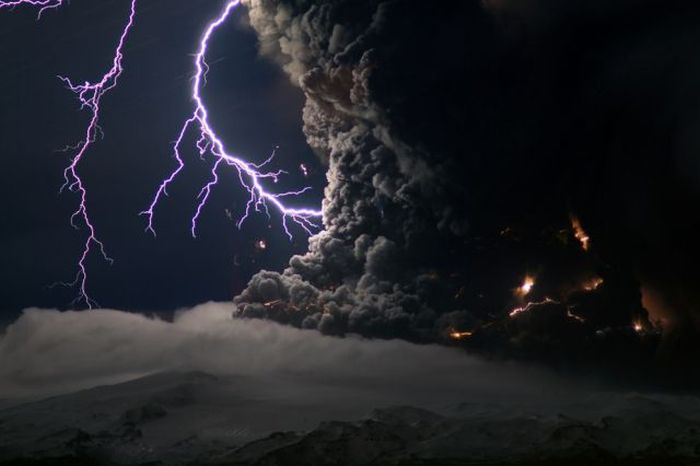|
|
Volcanoes Around The World
|
- Felsic lavas (dacites or rhyolites) tend to be highly viscous (not very fluid) and are erupted as domes or short, stubby flows. Viscous lavas tend to form stratovolcanoes or lava domes. Lassen Peak in California is an example of a volcano formed from felsic lava and is actually a large lava dome.
- Because siliceous magmas are so viscous, they tend to trap volatiles (gases) that are present, which cause the magma to erupt catastrophically, eventually forming stratovolcanoes. Pyroclastic flows (ignimbrites) are highly hazardous products of such volcanoes, since they are composed of molten volcanic ash too heavy to go up into the atmosphere, so they hug the volcano's slopes and travel far from their vents during large eruptions. Temperatures as high as 1,200 °C are known to occur in pyroclastic flows, which will incinerate everything flammable in their path and thick layers of hot pyroclastic flow deposits can be laid down, often up to many meters thick. Alaska's Valley of Ten Thousand Smokes, formed by the eruption of Novarupta near Katmai in 1912, is an example of a thick pyroclastic flow or ignimbrite deposit. Volcanic ash that is light enough to be erupted high into the Earth's atmosphere may travel many kilometres before it falls back to ground as a tuff.
- If the erupted magma contains 52–63% silica, the lava is of intermediate composition.
- These "andesitic" volcanoes generally only occur above subduction zones (e.g. Mount Merapi in Indonesia).
|
|









